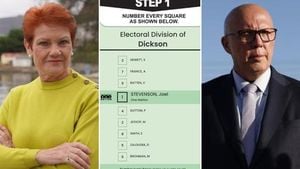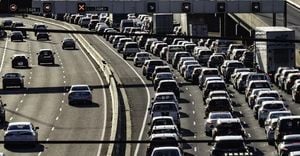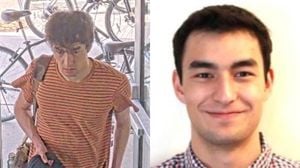As the Roman Catholic Church mourns the passing of Pope Francis, who died on April 21, 2025, the question on the minds of many is: who will be the next Pope? The answer will emerge only after the conclave of cardinals meets in the Sistine Chapel to select the 267th pontiff. However, this election is expected to be particularly unpredictable for several reasons.
One of the most significant factors is that out of the 135 cardinals eligible to vote, 108, or over 80%, were appointed by Pope Francis himself. This shift in the composition of the College of Cardinals reflects the Pope's efforts to reform the Church, resulting in a historic moment where less than half of the voting cardinals are European. Currently, there are 53 cardinals from Europe, 23 from Asia, 21 from Latin America, 18 from Africa, 16 from North America, and 4 from Oceania.
During his tenure, Pope Francis restructured the College of Cardinals to better represent the global Church, moving away from a European-centric model. He eliminated the old rules that automatically appointed bishops from certain dioceses in Italy as cardinals and appointed cardinals from regions that previously had none, such as Tonga, Haiti, and Papua New Guinea. This makes it challenging to predict how these cardinals will cast their votes.
Analysts suggest that the future of the Church may lie in Asia, leading to speculation that the next Pope could come from Southeast Asia or even Africa. The potential candidates for the papacy include several prominent figures:
Cardinal Pietro Parolin (Italy, 70 years old) is currently the Secretary of State of the Vatican, akin to a prime minister overseeing the governance of the Vatican City and the universal Church. Parolin has been a trusted advisor to Pope Francis and has extensive experience in diplomacy, having worked in Latin America and participated in peace negotiations in Colombia in 2016. However, his conservative stance on several issues, including LGBTQ+ rights, may pose challenges if he ascends to the papacy.
Cardinal Luis Antonio Tagle (Philippines, 67 years old) is often referred to as the "Pope Francis of Asia" due to his close alignment with the late Pope’s mission. He has been a leader in charitable initiatives and has called for the Church to be more compassionate toward marginalized groups. If elected, Tagle would be the first Asian Pope, reflecting the growing influence of the Church in Asia.
Cardinal Fridolin Ambongo Besungu (Democratic Republic of the Congo, 65 years old) is a prominent figure in Africa, where Catholicism is flourishing. Ambongo has been vocal about democracy and human rights in his country and has a strong conservative stance on social issues. His leadership could appeal to both progressive and conservative cardinals.
Cardinal Peter Kodwo Appiah Turkson (Ghana, 76 years old) has been considered for the papacy since 2013. He would be the first Pope from Africa in 1,500 years. Turkson is known for his cheerful demeanor and has spoken against anti-LGBTQ+ laws in several African countries. However, he has expressed uncertainty about his ambitions for the papacy.
With the conclave expected to convene soon, the cardinals will engage in a series of secretive votes until one candidate emerges with a clear majority. This process is not only a matter of tradition but also reflects the changing dynamics within the Church.
The recent changes in the composition of the College of Cardinals and the global representation it now holds make it difficult to predict which direction the Church will take. Will the next Pope continue the progressive reforms initiated by Pope Francis, or will there be a shift back to conservative values? The upcoming conclave will undoubtedly be a momentous occasion, as the world watches closely to see who will lead the 1.4 billion Catholics worldwide.
In the lead-up to the conclave, many are speculating about the potential candidates and their respective chances. The diversity among the cardinals could lead to a historic moment for the Church, possibly marking the first time a non-European Pope is elected. This would reflect the Church's growing recognition of its global congregation, particularly in regions like Africa and Asia.
As the days draw closer to the conclave, the anticipation builds. The cardinals are faced with a monumental decision that will shape the future of the Catholic Church for years to come. Who will emerge as the next Pope? Only time will tell, but one thing is certain: the next leader of the Roman Catholic Church will have a profound impact on the faith and its followers around the globe.




